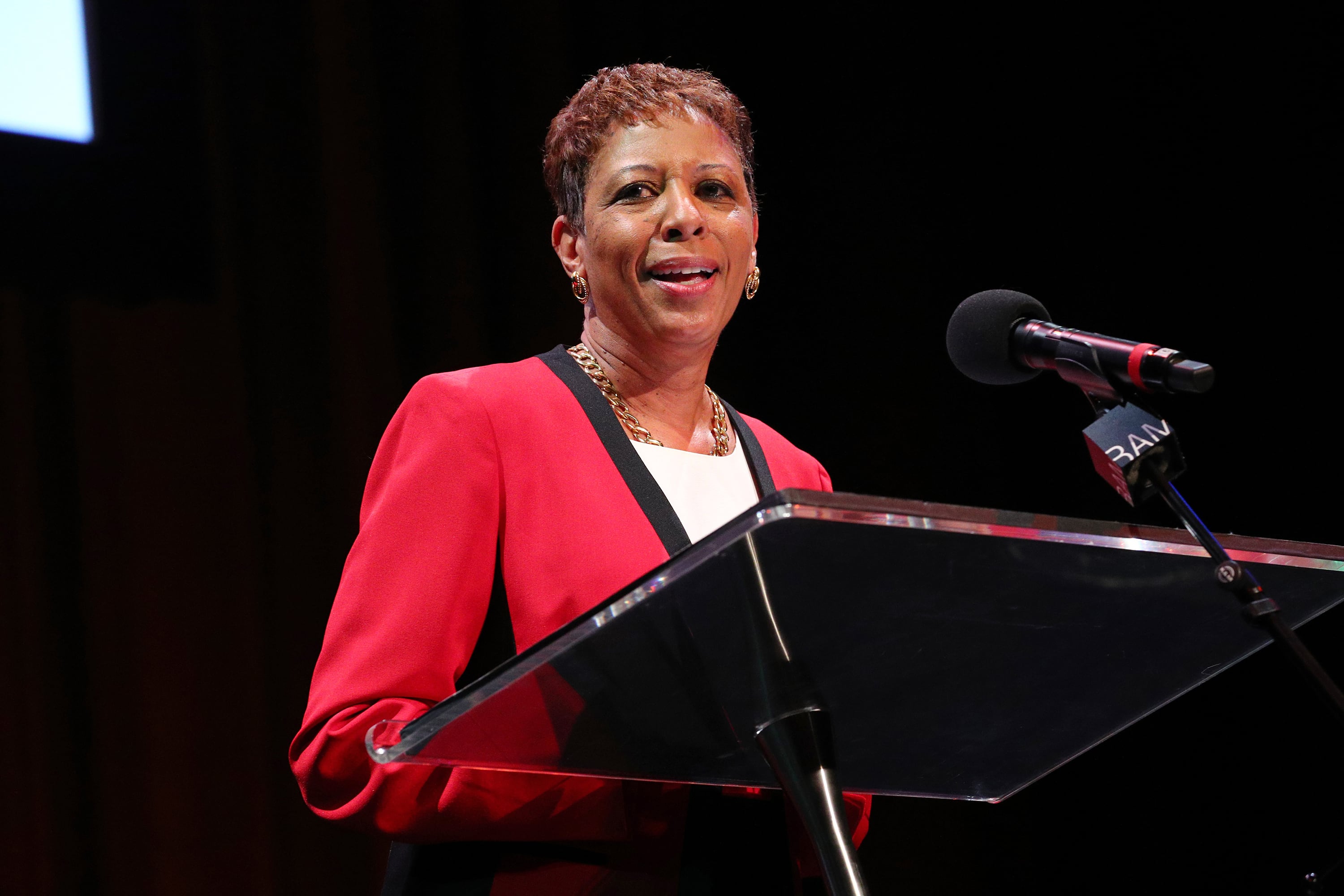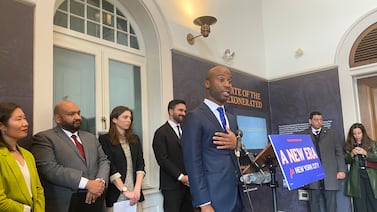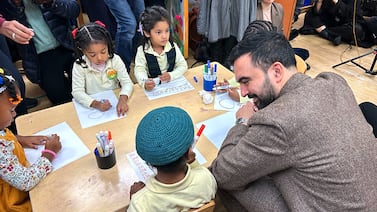Sign up for Chalkbeat New York’s free daily newsletter to keep up with NYC’s public schools.
New York City Council members unveiled their response to Mayor Eric Adams’ budget proposal on Monday, calling on the city to reverse recent budget cuts and provide millions of dollars in additional funding for school food, early childhood education, and other programs.
Adams’ preliminary city budget cut about $100 million in funding from the city’s schools in January. Those cuts — though less severe than anticipated — came on top of roughly $600 million in cuts announced in November.
Under the mayor’s proposals, early childhood education programs have seen steep cuts in recent months — with roughly $170 million slashed. Though schools Chancellor David Banks hinted at a possible reversal last month, Adams later put a damper on that prospect.
The council’s April budget response calls on the Adams’ administration to restore that funding — and to increase the number of seats offered in the city’s 3-K and prekindergarten programs through an added $45 million investment.
“Together with housing, early childhood education has risen to the top for working and middle class families,” Council Speaker Adrienne Adams said at a Monday press conference. “We need to strengthen our early childhood education system, which has been beset by bureaucratic challenges and undermined by budget cuts.”
In the budget response, council members said their assessments had identified significantly higher tax revenues and available funds than projected by the Mayor’s Office of Management and Budget — opening up further funds to restore proposed cuts and replace expiring federal relief funds.
“Against all odds, New York City’s post-COVID economy has proven to be durable and resilient,” said Finance Committee Chair Justin Brannan. “We maintain that the administration’s blunt cuts were never necessary in the first place, and we’ll be fighting for and expecting to see full restorations across the board, from 3-K, to CUNY to our libraries, to our cultural organizations, and everything in between.”
Council members called for $60 million for the city’s school food program — including $17 million to restore cafeteria staffing to pre-pandemic levels, among other items.
Earlier this year, budget cuts led schools to scrap popular cafeteria menu items, including student favorites like cookies, chicken dumplings, and bean and cheese burritos. The decision sparked a backlash from students and families, prompting the city’s Education Department to reverse course on some of those changes.
With federal relief funds set to dry up this year and the city’s schools facing a looming fiscal cliff of more than $1 billion, City Council members are seeking additional funding to protect programs and services propped up by federal dollars.
For example, council members called for $33 million in funds for the city’s Learning to Work program — a long-standing initiative that is currently supported by the expiring federal funds. The program, which pairs alternative schools with community organizations to help students get back on track to graduate, has been called a lifeline for high-need students who enroll in transfer schools and evening classes.
Council members also sought to replace expiring federal funds for preschool special education programs and services, community schools, school social workers and psychologists, restorative justice programs, shelter-based community coordinators, and more. In total, council members called for about $550 million in city funding to replace expiring federal relief funds, according to a press release.
Among other investments, council members called for an additional $9 million in funds for Promise NYC, a free child care program for low-income, undocumented immigrant families — which would bring total funding to $25 million.
The council’s budget response is a required step in the city’s ongoing fiscal planning process. Council members and the mayor must reach a budget agreement by the end of the fiscal year in June.
The mayor’s executive budget — the next milestone in the process — is due by April 26.
Julian Shen-Berro is a reporter covering New York City. Contact him at jshen-berro@chalkbeat.org.






